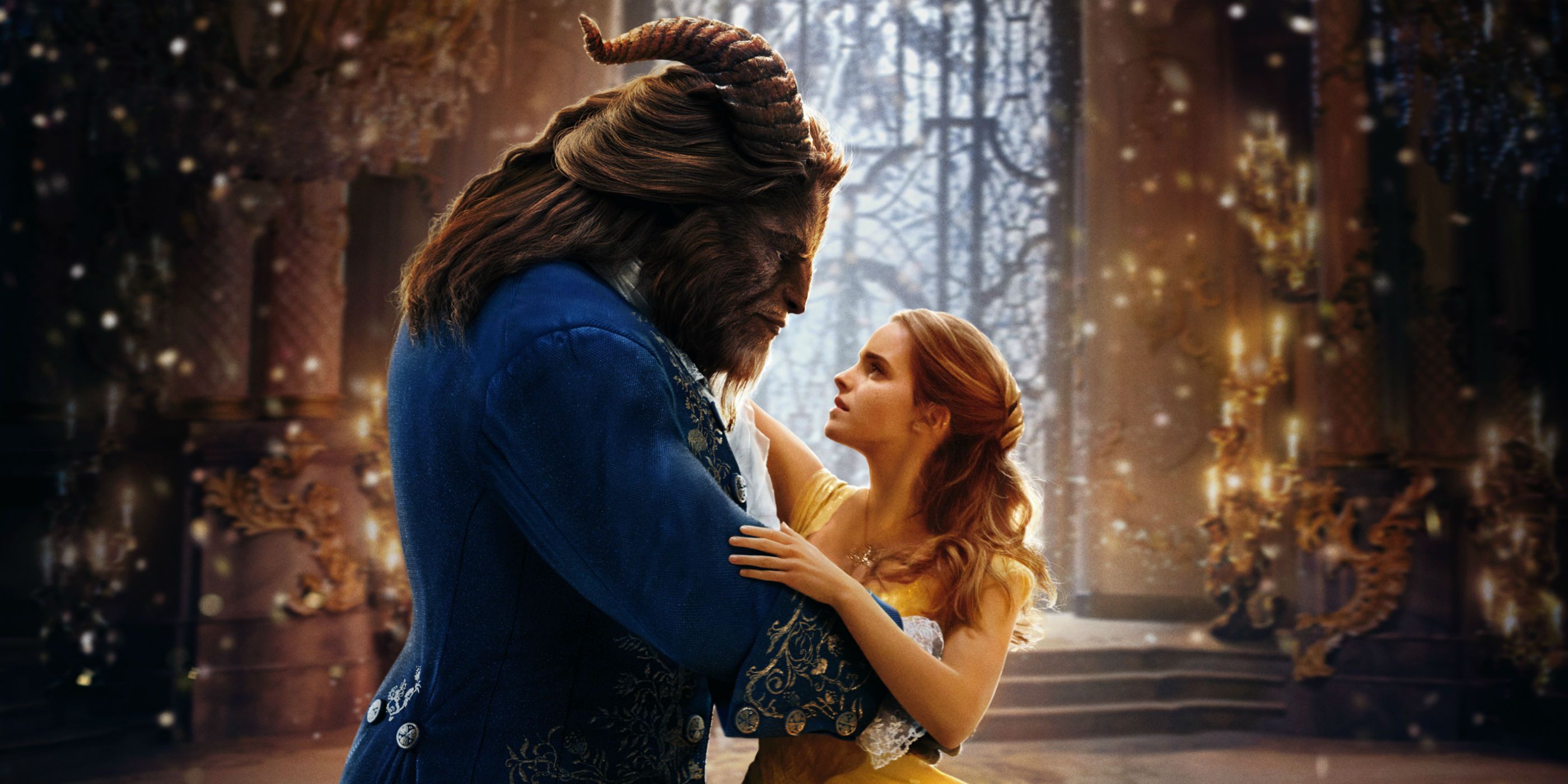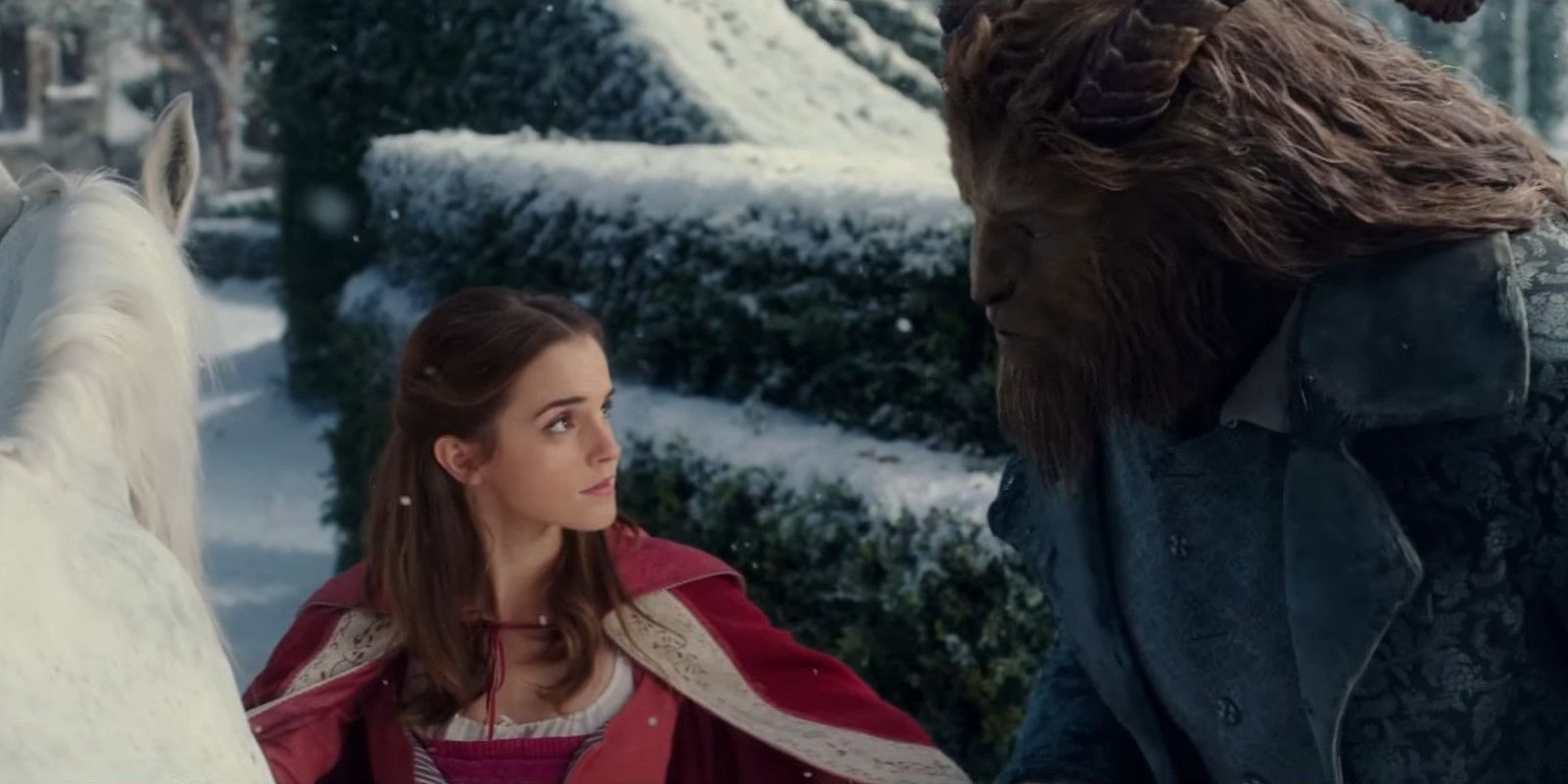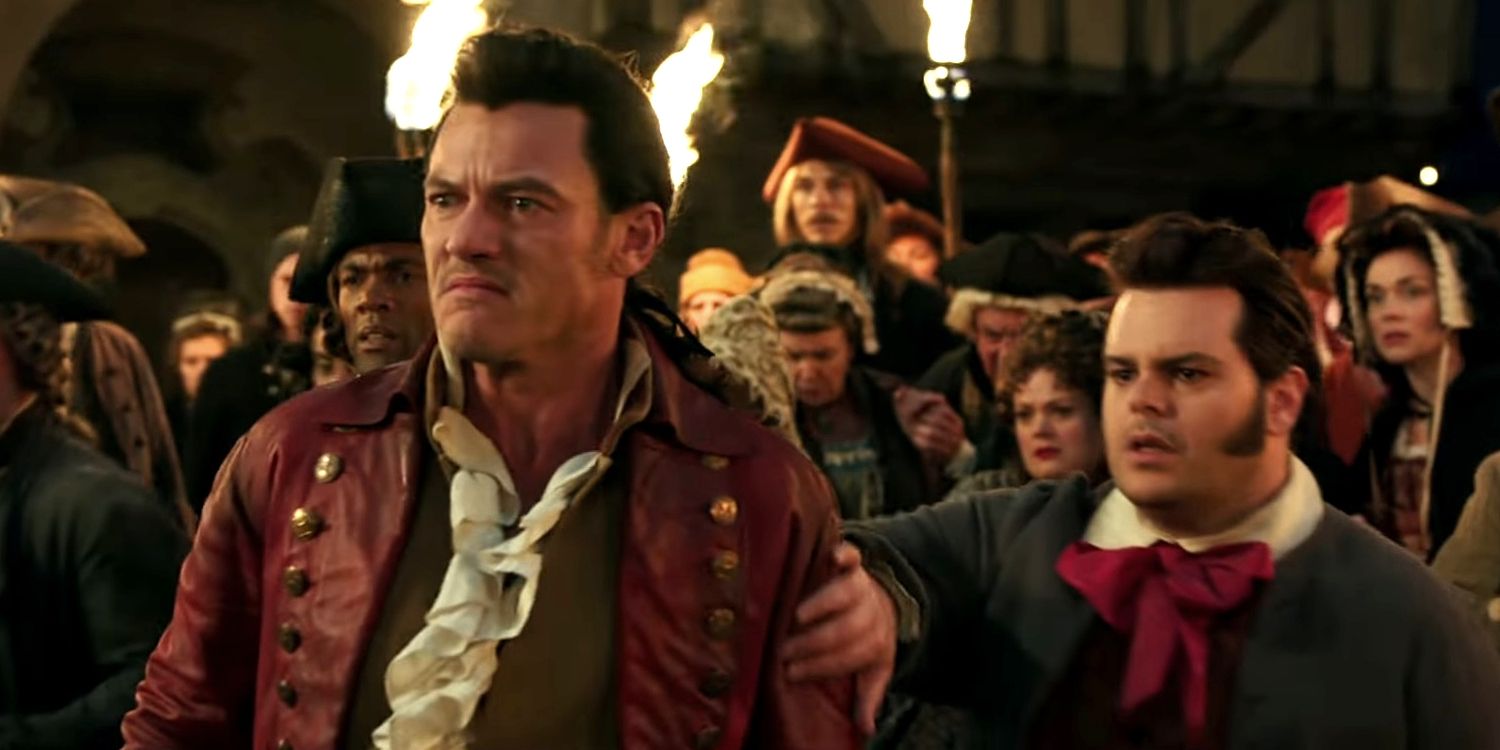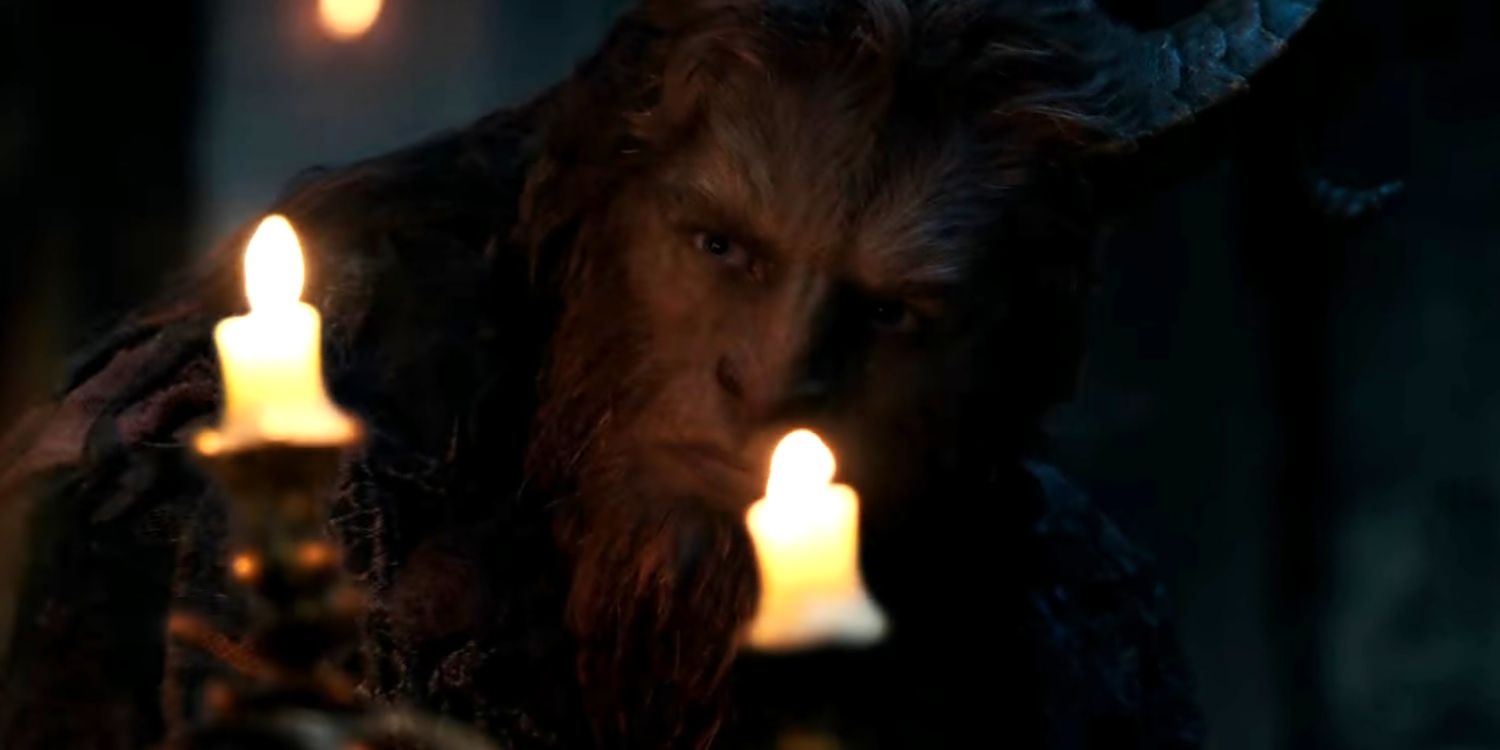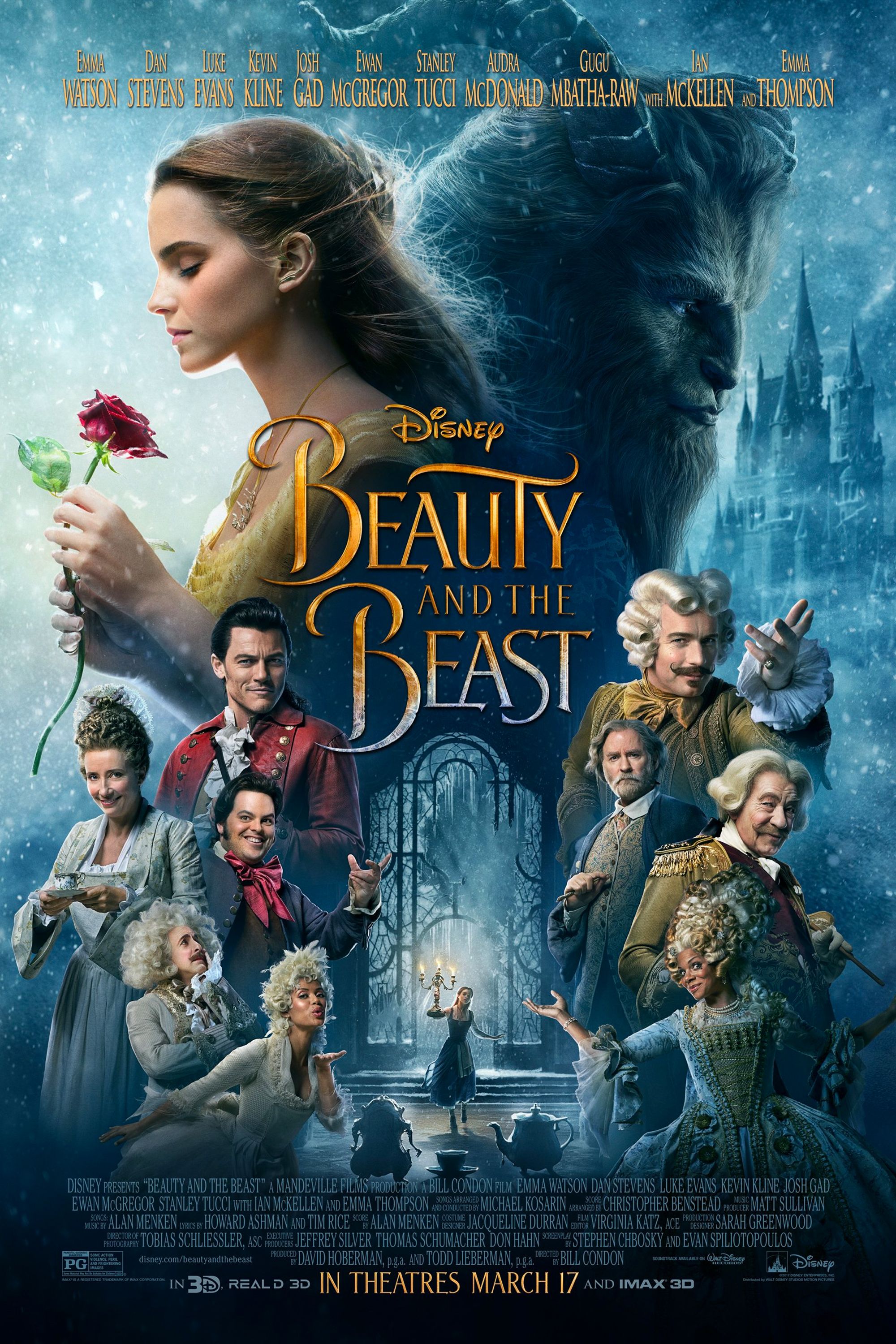WARNING: Spoilers for Beauty and the Beast ahead
-
Beauty and the Beast, the live-action remake of the 1991 animated classic, was destined to be a success. While the critical response so far has been generally positive, it's really just the cherry on top of a movie that was already 'review proof': A beloved property engineered by a studio renowned for its nostalgic prowess to appeal to the widest audience possible. As such, that freedom (which few studios possess even in the blockbuster age of film-making) would surely allow Disney to experiment with their well-worn formula and freshen up the story for a modern audience.
That didn’t happen. Beauty and the Beast is an odd film in many ways, even as it adheres to the safest routes of storytelling. Much of the film is a near-identical replication of the original, down to repeated dialogue and recreations of iconic scenes. It’s a redundant method of film-making, but it also makes sense from a cold-hearted business point of view: Why fix what isn’t broken, especially when that formula has proven so profitable and helps with strengthening the brand? That’s not to say that the film is totally without new additions, but the small shifts made in aid of evolving the stories and characters to fit changing sensibilities ultimately rob the story of much of its emotional depth.
Several of these changes were heavily lauded in the press by the cast and crew of the film as part of the extensive promotional campaign. Emma Watson, who plays Belle, took great pains to emphasize the feminist nature of the character – a topic of passionate discussion in feminist film critic circles – and play up the newly added elements of the film that supposedly gave her more agency than was present in the original story. The symbol of this evolution was the washing machine, invented by Belle to ease her workload and give her more time to read, which Watson said was a symbol of the town’s distrust of her. Given the build-up dedicated to this device in the publicity for the film, it’s something of a letdown to finally see the crucial scene and have it be so utterly inconsequential.
The machine is shown in action, two villagers sneer at it, the device is tossed aside by them, and Belle picks up her dirty clothes. That’s all we ever see of it, and it impacts neither the story nor Belle’s arc. We never see her ambitions as an inventor in the rest of the film, nor any display of her intellect or skills. Indeed, it’s never mentioned again. The villagers’ mistrust of her based on her aloofness and preference for books over people is made key in the opening song – as it was in the original – and this attempt to develop that further falls completely flat because it’s abandoned so quickly into the story. Instead, the audience is left with more questions than the supposed solutions can answer. Belle goes from a headstrong character with a definable motivation to a muddled example of unfulfilled potential.
The film is full of these minute changes that are seem inconsequential yet fundamentally alter the emotional resonance of the story. One of the most fascinating elements of this failure in action is in the development of the villain, Gaston (Luke Evans). In the canon of Disney villains, another well of nostalgic and financial success for the studio, Gaston is arguably the most realistically terrifying of the bunch: A charismatic bully who sees women, particularly Belle, as prizes to be won - whether they like it or not. He's so scary because he's easily found in real life, and his superficial charisma allows him to rile up paranoia and fear amongst the village to his own benefit.
In the new version of Beauty and the Beast, Gaston is given a barely mentioned backstory of time in the military that has left him without purpose in his civilian life, as well as a possible anger management problem that only his comrade LeFou (Josh Gad) can temper. This addition opens up a variety of possibilities to develop Gaston beyond his simple yet highly effective foundations, but once again, it's reduced to a few lines of throwaway dialogue and muddled intentions that sap him of his threat. Minor plot changes, such as Gaston and LeFou accompanying Belle’s father Maurice (Kevin Kline) to look for the castle ending in him being abandoned by the pair, weaken the narrative further.
That change also further undermines Gaston’s relationship with LeFou, and the latter’s own development, which has been widely hyped thanks to the confirmation that the character is officially Disney’s first canon-gay character. The "exclusively gay" moment of his story is a blink-and-you'll-miss-it shot of LeFou in the finale's ballroom scene, shoved into the arms of a nameless male character who had previously been seen in drag, implying the obvious. While Disney confirming it as gay and not just camp coding is appreciated - especially given the studio's long history of coding characters as gay, particularly villains - it's still a letdown in terms of narrative payoff. Everything leading up to it for LeFou's character relies on gay stereotypes common in cinema. LeFou is bitchy, clingy, obsessed with a man who's clearly not interested, and Gad's performance leans heavily on swishy movement. There's a long history of these tired tropes being trotted out to define LGBTQ characters, and it's a shame to see Disney doing so, then calling it revolutionary. LeFou gets a rehabilitation of sorts, in that he turns against Gaston in the climax, but only after he is abandoned by the man in a moment that plays out like a break-up scene (even the piano gets in an 'ouch' aside over Gaston's insensitivity).
LeFou's characterization has attracted homophobic backlash, with a cinema in Alabama pulling the film in protest and Malaysia outright banning it from the country. To the studio's credit, Disney has refused to cut the film to appease censors, and that should be applauded given the current industry's reliance on the international market and their willingness to do anything to pander to it, but the scrap of representation left in place remains unsatisfying. It’s about time that Disney acknowledged the existence of LGBTQ people (and they remain dedicated to that fan-base in ways other studios often don’t accommodate for), but it’s clear they can and should do more when the opportunity presents itself.
Not even the Beast can escape unscathed from this film’s bizarre meddling. A backstory is briefly inserted to explain his coldness and, because it’s Disney, of course it involves a dead parent. There’s also a tyrant father who forced his bitterness and cruelty onto his impressionable son, and that is partly used to explain the age-old question as to why the servants were cursed by the enchantress’s spell along with the prince. In fairness, that’s something even the most ardent fan of the original film has wondered, but once again, it only leaves more unanswered questions. Mrs Potts (Emma Thompson) explains that the servants feel guilt over their inaction regarding the prince’s father’s poisoning of him, and that they are partly responsible for the curse that has fallen upon the household. It’s a weak explanation at best. There’s no further elaboration on why they feel so responsible – they’re employees, after all, and meddling would have led to them being fired – nor why the father is now absent from his life (is he dead)? Moreover, that apparent responsibility is never put into action in the rest of the story. These people are reliant on him to fix their predicament, yet they do nothing to help and much to anger him. It’s an incoherent master-servant relationship that muddies the clearly defined waters of the original film.
There is one character who truly benefits from the film’s tinkering of this manner: Maurice. Gone is the goofy eccentric of the original, who serves more as a punchline and plot device than a character, and in his place is a tender, loving and accommodating parent who works hard to give his daughter what she needs while understanding he can only do that for so long. Kline shines in these moments with Watson, supporting her assertiveness while still struggling with his grief for the loss of her mother. It’s a change that truly benefits the story and adds a depth to Belle’s character in return. Sadly, Maurice is also misused by the story, particularly in the clumsy added scene with Gaston and LeFou. His quiet power is undermined by the film’s pantomime-style expansion of the story’s scope: Everything is bigger, louder and more expensive, and the film’s emotional heft suffers for it.
Visuals seem to matter more than story, probably because they’ll sell more polyester dresses and dolls. Of course, the film often looks sumptuous, with impeccable production design, costumes and effects. The music is, predictably, stunning, and there are several standout performances in this lofty ensemble, including Evans and Dan Stevens, the latter of whom conveys a real sense of character behind the CGI. There are many areas where the film succeeds, yet this merely heightens how much the rest of the story stumbles at the simplest of parts. Disney have put themselves into a curious bind, at once too timid to truly change their iconic stories, yet missing the inherent power and appeal of them when they make these seemingly redundant shifts.
The film's goals are commendable, and it's a good sign that the studio are aware of the need to evolve with the times - also to the film's credit is the diversifying of the story's ensemble in terms of race, although its two biggest black stars are a wardrobe and feather duster for the majority of the film. Whether Disney will commit to further major changes in the future remains to be seen. Beauty and the Beast's staggering opening weekend will undoubtedly pave the way for more live-action remakes, with Mulan on the way, but they need to be more than slavish copies of the originals, and they need to be brave enough to walk the walk they so enthusiastically talk. When you're guaranteed to make as much money as this, why not take greater risks?

